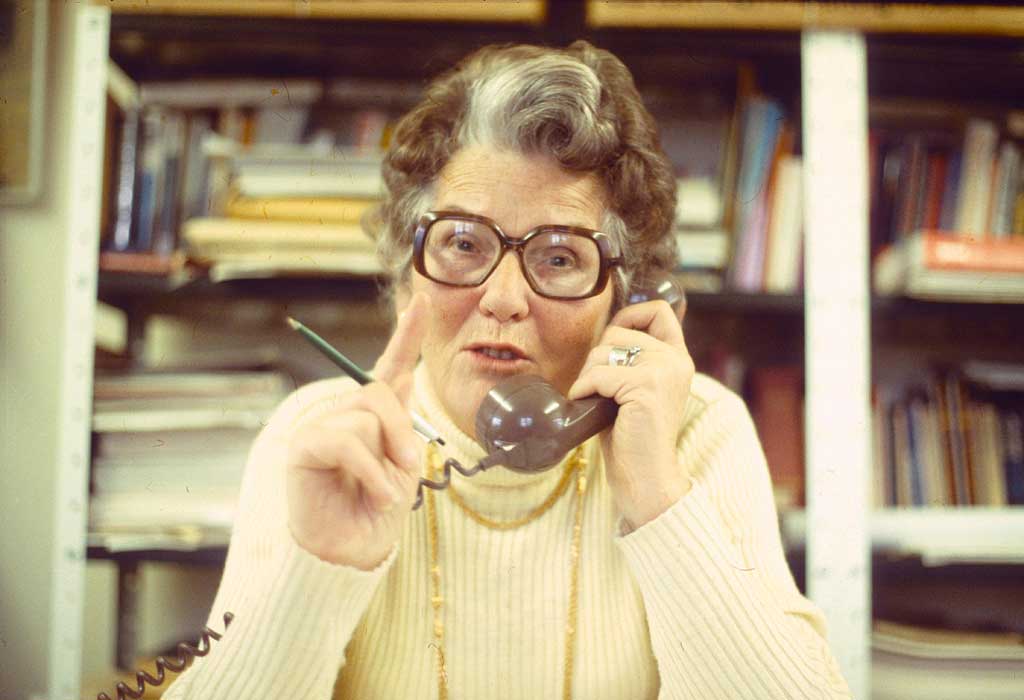BAN THIS FILTH! Letters from the Mary Whitehouse Archive, Edited by Ben Thompson
In hindsight, the hate-figure of the permissive era put tough questions to her time, and ours.

Your support helps us to tell the story
From reproductive rights to climate change to Big Tech, The Independent is on the ground when the story is developing. Whether it's investigating the financials of Elon Musk's pro-Trump PAC or producing our latest documentary, 'The A Word', which shines a light on the American women fighting for reproductive rights, we know how important it is to parse out the facts from the messaging.
At such a critical moment in US history, we need reporters on the ground. Your donation allows us to keep sending journalists to speak to both sides of the story.
The Independent is trusted by Americans across the entire political spectrum. And unlike many other quality news outlets, we choose not to lock Americans out of our reporting and analysis with paywalls. We believe quality journalism should be available to everyone, paid for by those who can afford it.
Your support makes all the difference.To some, Mary Whitehouse was a pernicious, dangerous woman. Sir Hugh Greene, Director General of the BBC in the 1960s, thought that she "would have been at home in Nazi Germany or Communist Russia". A liberal intellectual, Greene considered her "a sign of an unattractive degree of filthy madness in this country as shown later in such things as the National Front".
It was the declining moral standards of the BBC that prompted Mary Whitehouse, a senior mistress at a Shropshire secondary school, to launch her Clean Up TV Campaign in 1964. It represented a growing body of viewers and listeners increasingly outraged by the swearing and promiscuity in programmes like Up the Junction and Cathy Come Home. Her campaigns sounded alarm bells in Middle England, and the swish of her cane had bite.
Greene eventually resigned from the BBC after refusing to remove an offending line from the Beatles song "I am the Walrus" in the television film Magical Mystery Tour after being petitioned by Whitehouse. Arguably, Russell Brand's rendition of the song at the 2012 Olympics closing ceremony would have been more deserving of a ban.
She also fulminated about the obscene language of The Doors' live act, Mick Jagger's use of his microphone as a phallic symbol on Frost on Saturday, and Jimi Hendrix for caressing his guitar like the body of a woman. Her campaign against Sweet's "Teenage Rampage" foundered on the rocks of indifference when Ian Trethowan, head of BBC radio, declared, not unreasonably, that the words of the song "are totally empty of real content – like all too much pop music".
To others, Mary Whitehouse was a pantomime villain, a literalist lacking irony or humour, someone who took offence at the camp playfulness of the lyrics of Chuck Berry's "My Ding- a-Ling". Alice Cooper famously sent her a bunch of flowers for helping "School's Out" storm to number onein 1972 after she campaigned to have it banned. She inspired parodies from Barry Humphries's Dame Edna to Caroline Aherne's Mrs Merton. Whitehouse became a benchmark for artists – if you offended her, then you were doing something right.
However positive Whitehouse's intentions were, she seemed weirdly obsessed with sex, advocating "a satisfying life without sexual intercourse". Nevertheless, a poignant viewer's letter, complaining about his children watching Gary Glitter on Crackerjack singing "Do You Wanna Touch Me? (Oh Yeah)", needs little commentary.
From a liberal perspective, it's not the singularity of her opinions that unsettle, but rather the issues she got right: Gordon Ramsay's expletive-ridden shows, the sexualisation of children on television. The prescience of her words if applied to the internet is unnerving: "Let us remember that freedom dies when moral anarchy takes over, and that it lives when citizens accept limitations upon themselves for the greater good of the community as a whole".
Ben Thompson's witty and engaging commentary is admirably even-handed: "we complained about her when she was alive, we sort of miss her now she's gone."
Join our commenting forum
Join thought-provoking conversations, follow other Independent readers and see their replies
Comments